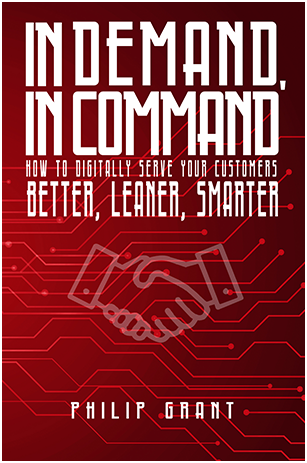
In Demand In Command
2. CRM is a Core Business Strategy

Adopting a conviction that Customer Relationship Management (CRM) should be a core business strategy will help enable you to truly put the customer at the heart of the organisation’s ‘reason for being’. Whilst CRM is a well-established approach to manage the analysis, interaction and transactions of customers, many organisations have stated that they are unable to realise, or measure effectively, their return on CRM investment.
But what exactly is CRM? There are many definitions to CRM, very much along the lines of…
“CRM is a technology for managing all your company’s relationships and interactions with customers and potential customers. The goal is simple: Improve business relationships. A CRM system helps companies stay connected to customers, streamline processes, and improve profitability.”
And
therein lies the dichotomy – “…a technology.”
Taking a broader view to go beyond CRM and examine the more
future-relevant strategic and tactical lifecycle of digitally enabled customer
reltionship management. Consequently, a
definition of CRM could look like
“A strategy to proactively learn about customers personalised needs and aspirations. Leading to the superior management and delivery of the entire customer engagement lifecycle at every single touchpoint. Its primary goal is to add tangible value to the business by continually driving customer growth, retention and advocacy.”
Business Integration, not just systems integration, is essential for an organisation to enable its people and partners to deliver a common, shared and embedded vision, strategy, culture and desired goals. Given the proliferation of access channels, information and data, locations, global reach, and operational delivery models, it means now more than ever that consistency, seamlessness, security, convenience, and a single version of the customer record are at risk unless planned designed and delivered in a cohesive and common organisation-wide manner.
Post Views : 228